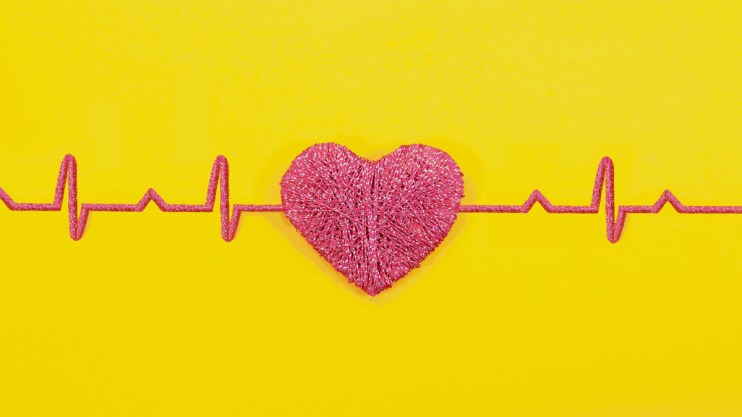Cardiovascular Disease – To know, you’ve got to know

Cardiovascular disease is the leading cause of deaths in England. Many people don’t know about it, or think it doesn’t affect them – yet it is the cause of one in four deaths across England. The good news is that CVD is largely preventable – and your blood pressure is the easiest way to tell if you might be at risk.
Though often without symptoms, the clearest warning sign that you might be at risk is persistently high blood pressure, known as hypertension. In England, almost half of CVD deaths are attributable to high blood pressure, and around half of heart attacks and strokes are associated with hypertension, too. It’s estimated that more than 12 million people in England – more than a quarter of all over-18s – have it, and more than 4 million of us are walking around with hypertension without knowing it.
What do the numbers mean?
Blood pressure is measured with two numbers – a higher number, which is the force with which your heart is pumping blood around your body, and a second lower number, which is the amount of resistance to your blood flow.
For under-80s, here’s what the numbers mean
90/60 to 120/80 is a healthy blood pressure
120/80 to 140/90 means you’re at risk of hypertension
40/90 and above is a sign of hypertension if persistently raised
About high blood pressure
When your blood pressure is too high, it makes your body work harder. It puts extra strain on your blood vessels, heart and other organs – everything from the brain to the kidneys to the eyes.
Persistently high blood pressure increases your risk of a number of serious and potentially life-threatening health conditions, such as a heart attack and stroke.
If you have high blood pressure, reducing it even a small amount can lower your risk of these health conditions.
Am I especially at risk?
All adults over the age of 40 are encouraged to get their blood pressure checked at least once every five years – repeating the process even if your first reading is ok.
Certain factors can make you more susceptible to hypertension – and therefore cardiovascular disease.
You might be more likely to develop hypertension if you:
- Are overweight
- Eat too much salt and not enough fruit and vegetables
- Don’t exercise enough
- Drink too much alcohol, coffee or other high-caffeine drinks
- Smoke
- Don’t get enough sleep or are regularly disturbed
- Are over 65
- Have a relative with high blood pressure
- Are of black African or black Caribbean descent.
How is it treated?
Health professionals will tell people with high blood pressure to make lifestyle changes – but there are also drugs available, which can help bring the risks down.
‘I was living an unhealthy life in finance – until I had to go to A&E’
Sean Alexander

Sean Alexander was by his own admission living an unhealthy life working as a financial advisor in London when an eye issue made him visit the optician.
“They said that there was haemorrhaging behind the eye which sounds severe. They told me to go to A&E, they did loads of tests on the eye, and they could see that it was the result of high blood pressure,” he told City A.M.
Sean was started on medication to reduce his blood pressure straight away, but it’s lifestyle changes that have made the biggest difference – and now, working in a different field as a strength and conditioning coach, he’s glad his high blood pressure was noticed early.
“To be honest I didn’t really know back then about high blood pressure – it was not something that was ever on my radar,” he says.
“I take actions on my own health now, whereas before I wouldn’t have taken anything seriously. So now I make sure that I get a yearly checkup – a full 360 – so I’ve always got a marker every year to know where my health is and the areas that I need to improve.”
Where do I get my blood pressure checked?
The first step to addressing high blood pressure is to find out if you might be at risk. The good news is that doing so is easier than ever.
You can get your blood pressure tested at a number of places:
- At many local pharmacies
- At your GP surgery
- As part of your NHS Health Check – for adults in England aged 40-74
- In some workplaces
- Or at home, with a blood pressure monitor
To know, you need to test
The only way to know if you have high blood pressure, or are at risk, is to get tested.
So get yourself tested – the NHS is ‘open for business’ and getting an early diagnosis is the best way to keep stress off the health service this winter.
Remember, CVD is largely preventable – but the only way to know, is to know.